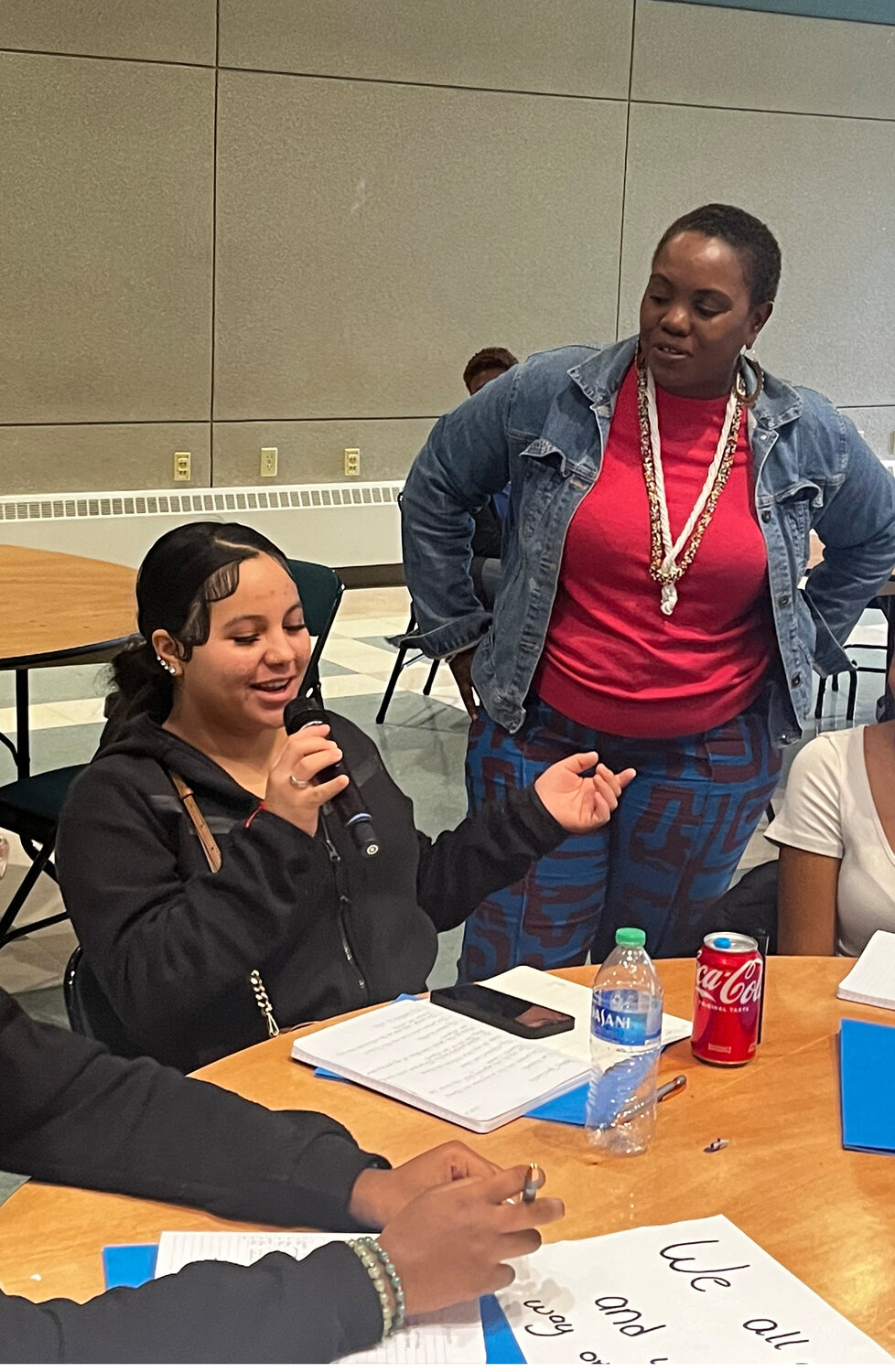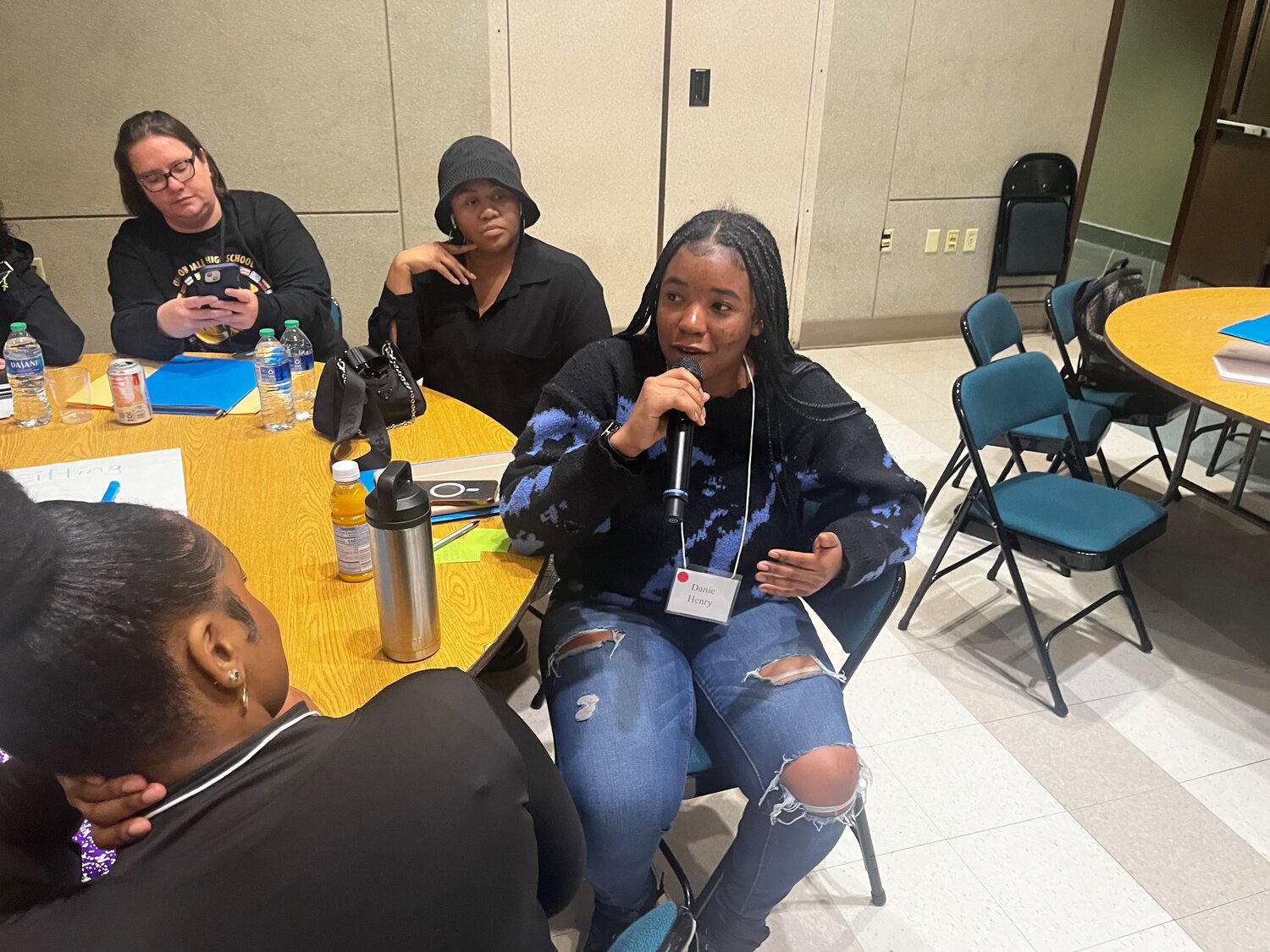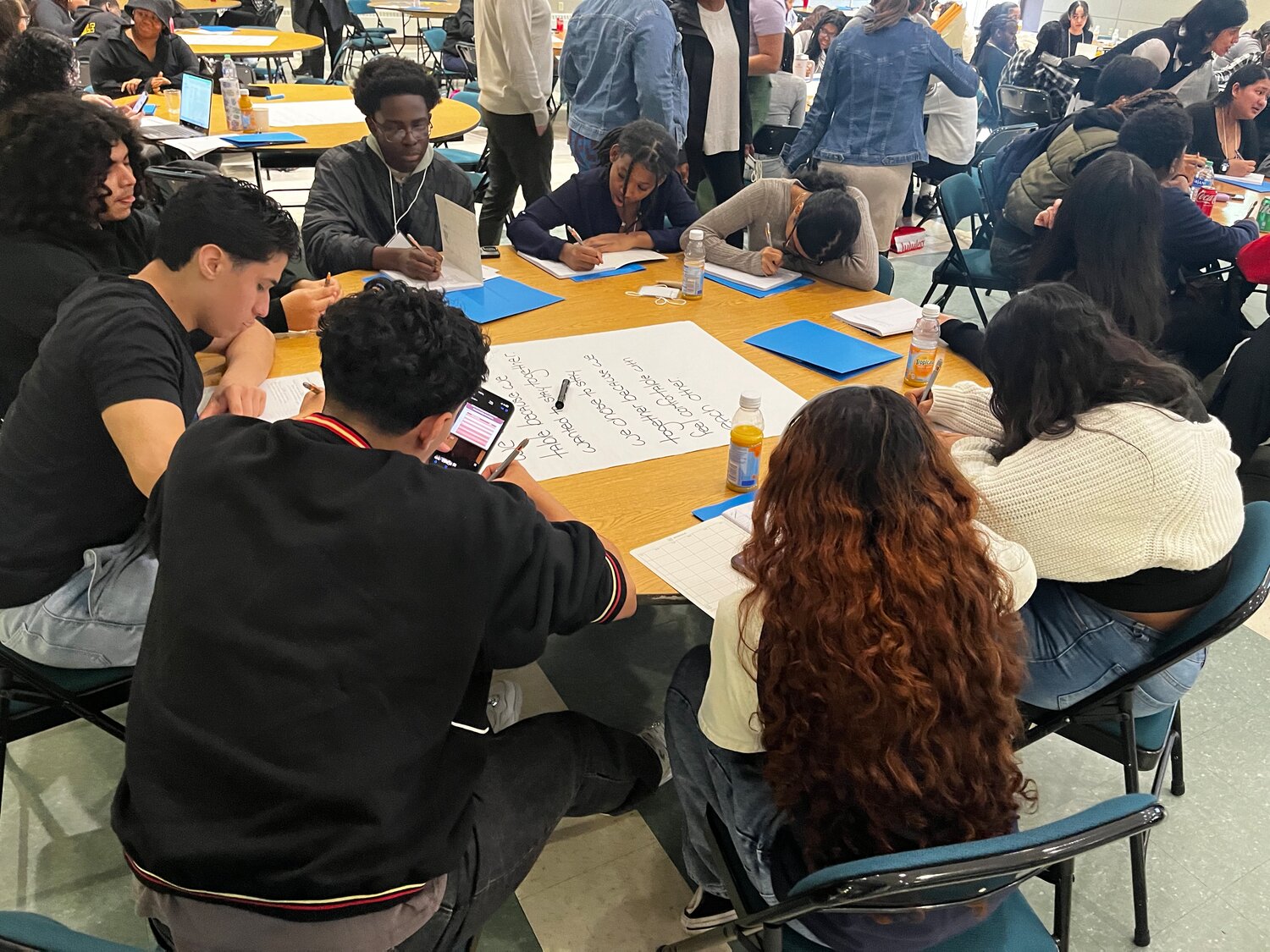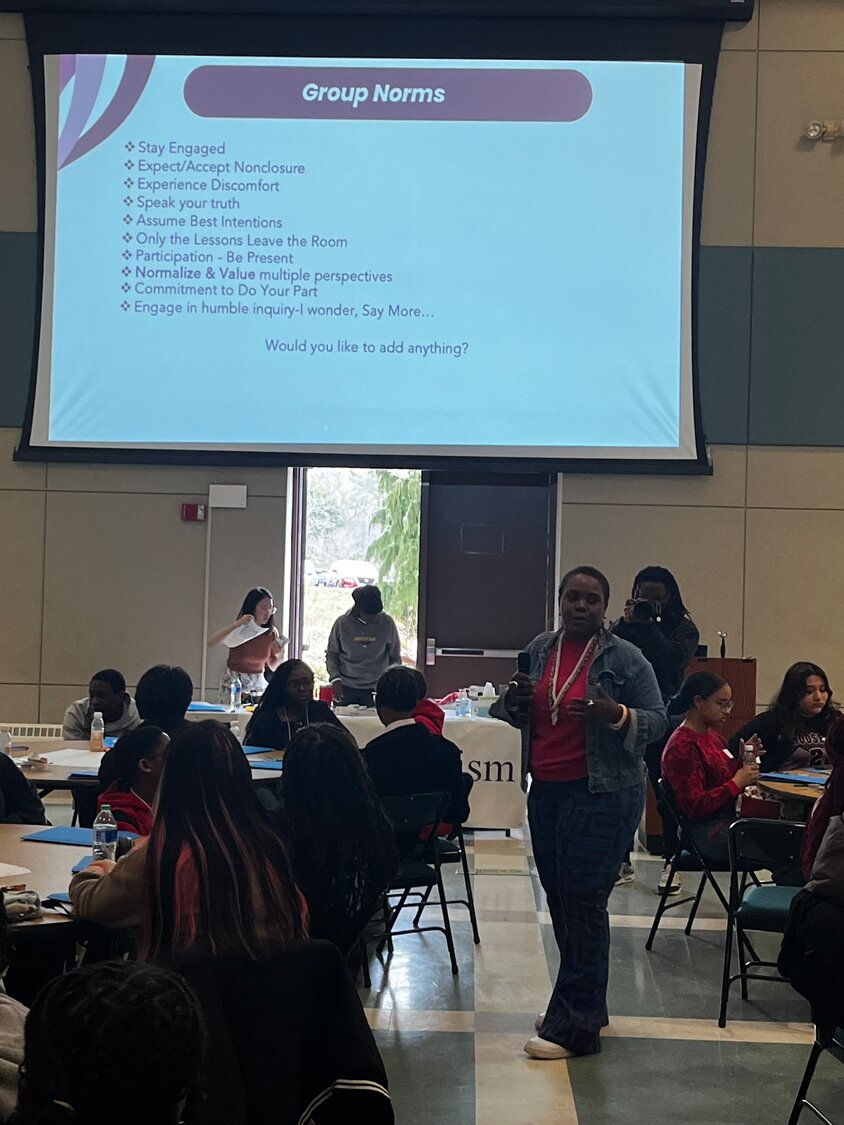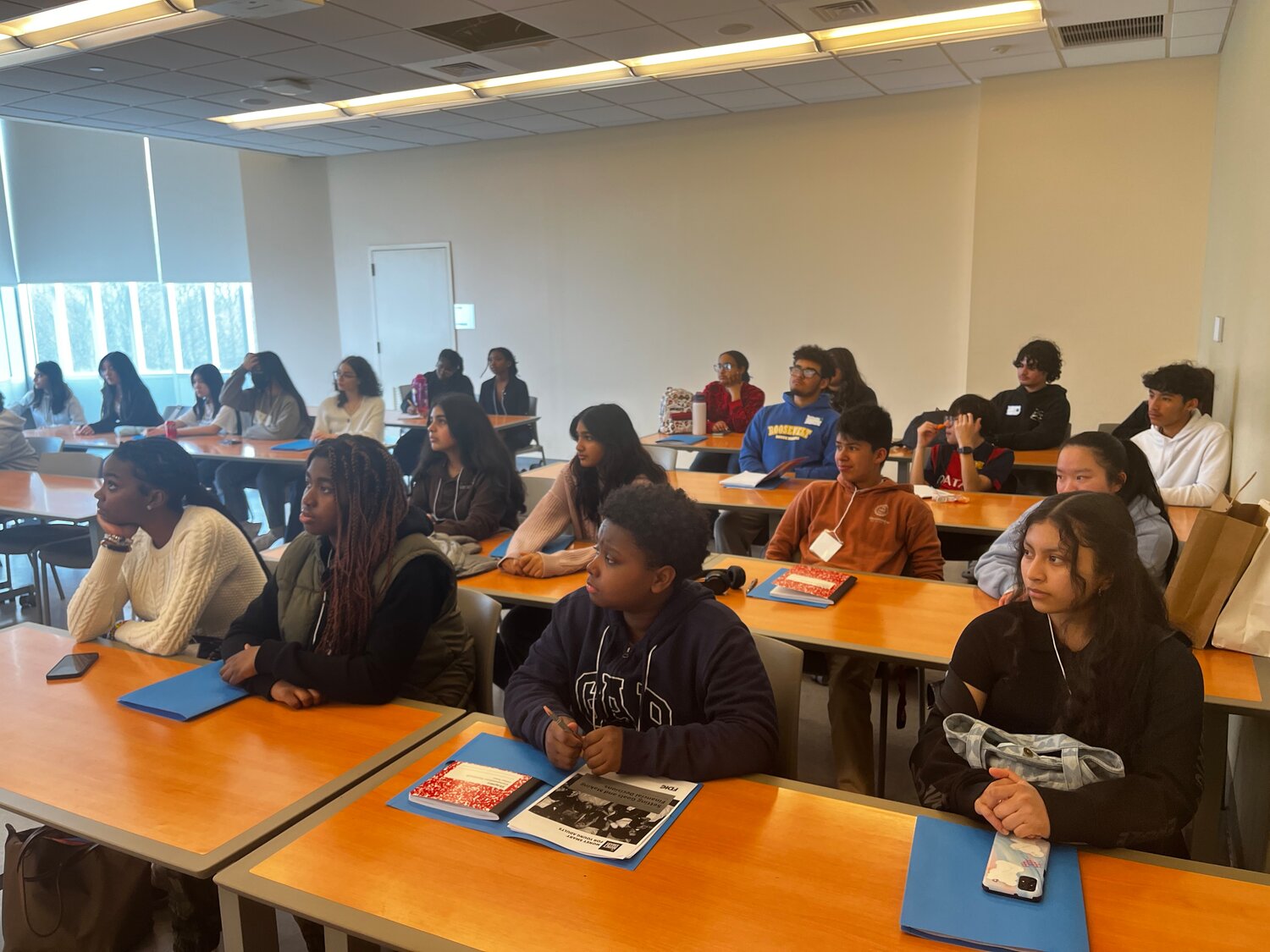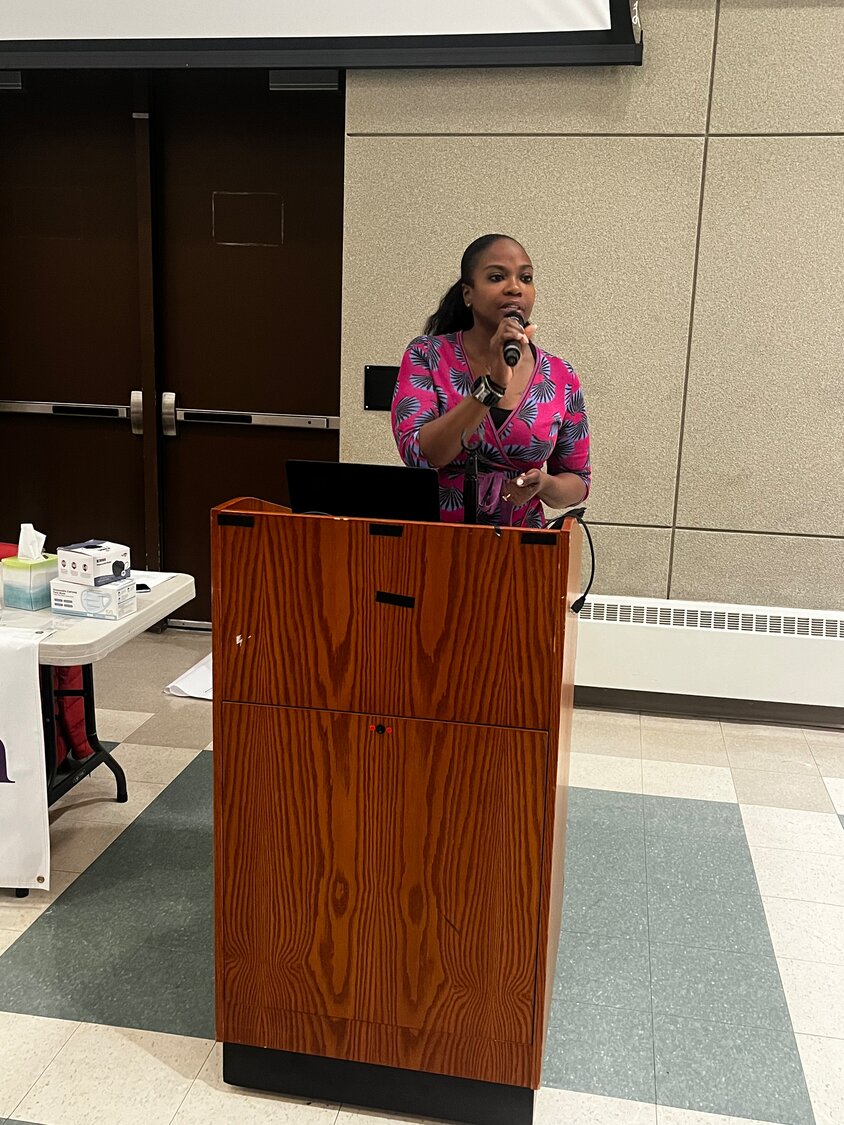Nassau County students gather to ERASE Racism
In one of the most segregated counties in the entire country, high school students from all over Nassau came together to discuss the everyday disparities they feel across the board, and ways their generation will work to overcome them in the near future.
The Long Island Leaders of Tomorrow Summit last Friday, organized by ERASE Racism — a nonprofit organization committed to eliminating racism and promoting equity — invited over a hundred students from various districts to SUNY Old Westbury for an in-depth conversation surrounding racism, class, and solutions they want to see.
"What today does is allow students to identify areas that they can work with their teachers and school leaders to shift some of those biases," said Erase Racism’s director, Laura Harding.
The day started with breakfast and a conversation surrounding structural racism in their schools and communities.
“You’re the generation that is going to fix the things that my generation and the generations before mine destroyed,” Danielle Lee told the room full of students. Lee is an associate dean, assistant professor of English, and the director of social and environmental justice institute at Old Westbury.
Lee stressed not just the importance of events such as last week’s summit for the young students who attended, but also stressed the importance of having these students see role models and people who look like them as leaders within the summit itself.
“If it is about us, but doesn’t include us, then it is not really about us,” Lee said, “and that goes for everything.”
Lee also told students that even though they come from many different places, to “listen to each other,” because they all might be going through similar things.
And she was right. Students from districts like Uniondale and Malverne compared their experiences of being Black and Brown in the two communities, comparing experiences, expectations, the demographics of people they see everyday, and the resources available to them.
“Having to go through metal detectors everyday to get into school would make me feel like a criminal,” said Jayden, a student from Malverne high school who attended the summit, after learning of the security measures in place at Uniondale’s high school.
Although there were stark differences in some experiences between the two communities, all of the students felt they had the shared experience of dealing with structural racism in their everyday lives. Despite Malverne being 70 percent white, the district’s minority enrollment makes up about 80 percent of the student body, with almost half of all students identifying as “economically disadvantaged,” according to New York state data.
Most students from Malverne village, according to multiple sources, attend private schools over the public school in the community. According to private school review, at least 25 percent of residents in Malverne village send their children to private schools. While Matt Morello, a 44 year-old Malverne resident, believes the number is actually closer to 75 percent of residents with children.
“We’re from Malverne, so we know the consequences of getting rid of DEI,” said one student who asked not to be identified. That student believes that without initiatives like diversity, equity and inclusion, students such as themselves and others who look like them may be overlooked throughout their community, which they believe is already a common thread.
On top of important, eye-opening conversations, students also learned about the five R’s of “real integration,” which was created by students in New York City. These R’s include resources, relationships, restorative justice, representation, and an end to the racial and socioeconomic segregation within our school districts.
Students also were able to attend an educational workshop, giving them the choice between financial education, economic work development, tips and tricks with the college application process, a workshop on outreach and advocacy as well as explaining how to run for office, and even a workshop for the chaperones, discussing adult advocacy.
Also making an appearance at the summit was Assemblymember Taylor Darling, who spoke to students and tried to ignite further inspiration for them to continue to be “catalysts for change.”
“Long Island is very segregated,” Darling told the Herald. “We’re dealing with a disproportionate distribution of funds and resources,” she continued, “we shouldn't be able to dictate or know who lives in what community based on what we see on the outside, and that is happening very comfortably on Long Island.”
"Racism is very present today in American society," said Emily, a Uniondale highschool student. But she believes, along with the rest of the students in attendance, they will be the generation to end these disparities.

 46.0°,
A Few Clouds
46.0°,
A Few Clouds 